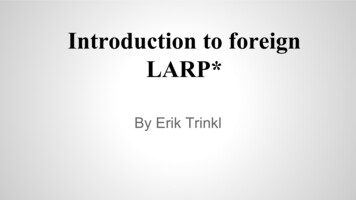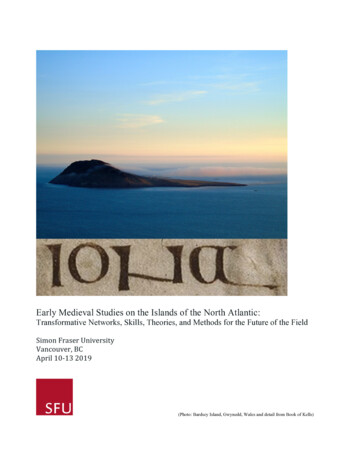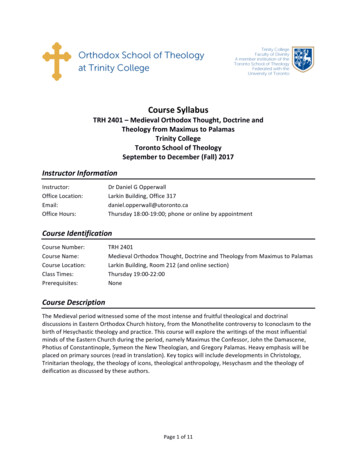
Transcription
Course SyllabusTRH 2401 – Medieval Orthodox Thought, Doctrine andTheology from Maximus to PalamasTrinity CollegeToronto School of TheologySeptember to December (Fall) 2017Instructor InformationInstructor:Office Location:Email:Office Hours:Dr Daniel G OpperwallLarkin Building, Office 317daniel.opperwall@utoronto.caThursday 18:00-19:00; phone or online by appointmentCourse IdentificationCourse Number:Course Name:Course Location:Class Times:Prerequisites:TRH 2401Medieval Orthodox Thought, Doctrine and Theology from Maximus to PalamasLarkin Building, Room 212 (and online section)Thursday 19:00-22:00NoneCourse DescriptionThe Medieval period witnessed some of the most intense and fruitful theological and doctrinaldiscussions in Eastern Orthodox Church history, from the Monothelite controversy to Iconoclasm to thebirth of Hesychastic theology and practice. This course will explore the writings of the most influentialminds of the Eastern Church during the period, namely Maximus the Confessor, John the Damascene,Photius of Constantinople, Symeon the New Theologian, and Gregory Palamas. Heavy emphasis will beplaced on primary sources (read in translation). Key topics will include developments in Christology,Trinitarian theology, the theology of icons, theological anthropology, Hesychasm and the theology ofdeification as discussed by these authors.Page 1 of 11
Expanded Course DescriptionThroughout Christian history, controversy and dispute have played midwife to nearly all the Church'sgreatest theological and doctrinal insights. In this course, we will explore the intellectual legacy of thekey controversies of the Medieval period, setting our attention on only the most influential authors andfocusing on the ideas at play (rather than, for instance, the politics which is explored in other courses).The Medieval period in the East began to take shape during the Monothelite controversy of the 7thCentury, a dispute centering on the question of whether it is proper to speak of two wills (divine andhuman) or just one will in the incarnate Christ. Into the fray of this discussion stepped one Maximus theConfessor—already among the most brilliant philosophical theologians in Eastern Church history—whose views on the subject would prove decisive for the Orthodox and Catholic Churches. Maximus'brilliant theological anthropology, focused on the relationships between created human beings and theutterly transcendent God, is perhaps even more influential in our own day than it was in his.Roughly a century after Maximus' time, the Eastern Church was again embroiled in controversy--thistime over the question of icons. Among the many theologians and Church leaders weighing in on thecontroversy was John of Damascus, whose theological and doctrinal insight went far beyond the realmof icons alone, and set new standards for philosophical rigour in questions of Christology, Trinitariantheology, and anthropology, ultimately building a foundation for Eastern theological scholasticism thatremains influential to the present day.In the 9th Century, Photius rose to become patriarch of Constantinople, presiding over (and eventuallyhelping to repair) one of the biggest rifts between the Eastern and Western churches—the 9th Centurycontroversy over the filioque. Often characterized as cantankerous and cynically political, Photius wasalso a careful theologian and sensitive pastoral thinker whose interests were far ranging. His discussionsof pneumatology and Trinitarian theology (especially surrounding the filioque) remain influential, ifoften criticized, and we will treat them here. We will also, however, seek to develop a sense of Photius'thought more broadly, reaching beyond the dispute for which he is most remembered.The 11th Century marked a period of relative stability in the Byzantine Empire and easternMediterranean. Concerned about the perhaps too-comfortable situation of the Church and the clergy,something of a revivalist movement sprang up around the figure of Symeon the New Theologian.Probably dubbed a “new” theologian as a pejorative at first, Symeon stirred controversy of his own inand around Constantinople, becoming renowned for his lush and evocative theological style, his concernfor religious vitality, and his remarkable accounts of encountering God in the form of Light. His thoughteventually captivated the Eastern Church as a whole, and his originally pejorative title now stands as oneof the great honorifics among canonized Orthodox saints.In the 12th and 13th Centuries, this theology of Light would crystallize into a movement known asHesychasm, originating especially in the monasteries of the East. Marked by intensive spiritual practiceand repetitions of the Jesus prayer, Hesychasm had numerous detractors, along with one especiallyfamous advocate. This was Gregory Palamas who would become famous for his masterful defense of thetheological concepts at the heart of the Hesychastic movement. Through Palamas especially, Hesychasmwas finally embraced by the Eastern Church, and the Hesychastic approach to religious life remains adominant strand of the Orthodox Tradition to the present.In this course, we will work through some of the key writings of these named figures to develop adeeper understanding of their profound and still influential insights about God and man. Our goal will bein part to develop a greater academic understanding of their thought and theology, its function and itsPage 2 of 11
stakes. But we will also seek to put these great thinkers into conversation with our own thought andspiritual lives as millions of Christians have done continuously over the centuries.Course ResourcesRequired Course BooksGregory Palamas. The Triads. Classics of Western Spirituality. Trans. Nicholas Gendle. New York: Paulist,1983.John of Damascus. Writings. Fathers of the Church 37. Trans. Frederic H Chase Jr. Washington: CatholicUniversity of America, 1999.Maximus the Confessor. On the Cosmic Mystery of Jesus Christ. Popular Patristics 25. Trans. RobertWilken and Paul Blowers. Crestwood: St Vladimir's, 2003.Symeon the New Theologian. The Discourses. Classics of Western Spirituality. Trans. C J De Catanzaro.New York: Paulist, 1980.Readings on Reserve/OnlinePhotius. The Homilies of Photius, Patriarch of Constantinople. Trans. Cyril Mango. Cambridge: Harvard,1958.Short secondary articles or book chapters will be posted occasionally to blackboard.Course PortalThis course will make extensive use of the University of Toronto’s Learning Portal also known as‘Blackboard’. The online version will be delivered entirely through Portal.To access the portal, go to the UofT portal login page at https://portal.utoronto.ca and log in using yourUTORid and password. Once you have logged in to the portal using your UTORid and password, look forthe My Courses module, where you’ll find the link to the website for all your Blackboard-based courses.(Your course registration with ROSI gives you access to the course website at Blackboard.) Note also theinformation at ion-students.Please ensure that you are familiar with how to access the system and navigate through it. The portalwill be used in the following ways: Keeping an updated version of the course syllabus and calendarProviding course readings, bibliographies and other handoutsSharing additional online resourcesCommunicating class notices and updatesIssuing assignment guidelines and deadlinesAccepting assignment submissionsProviding feedback and grades for all assignments and other course requirementsAdministering and grading quizzes and examsIn addition, for the online section, the portal will be used in the following ways:Page 3 of 11
Delivering weekly course lectures and seminarsEnabling student participation and interaction in the blogs, discussion forums and other onlinecommunications (see course requirements and evaluation below)Auditors who do not have a UTORid should speak to the instructor to receive guest access to the courseportal.As in the classroom, online communication must be carried out respectfully and civilly at all times.Writing within the online media of blogs, discussion forums is not an excuse for laziness, lack of properreflection or uncivility. Arguments must be carefully crafted, respectfully presented and grounded insource texts and solid reflection. Students who fail to adhere to these guidelines will not succeed in thiscourse.Course Learning ObjectivesStudents successfully completing this course will be able to: Identify the authors studied, including the period in which they lived and their basic historicalcontext. (Lectures, secondary readings, student research).Recall the most important extant writings of the authors studied, their basic content, and thereason for their significance. (Lectures, primary readings, student research).Communicate more effectively, verbally and in writing, about historical theology by makinglogical arguments about primary materials, engaging relevant secondary sources, and meetingacademic standards for writing and annotation. (Primary readings, writing assignments,directive feedback thereon, class/online discussion).Analyze ancient texts in translation to identify the genre, context, core arguments, intendedaudience and authorial purpose evident therein. (Primary readings, secondary readings,class/online discussion, directive feedback on written work).Assess how historical thought and theology affect contemporary religious communities,parishes, and churches, so as to more effectively guide their congregations and communitiesthrough discussion about Christianity's past. (Class/online discussion).Page 4 of 11
Programme OutcomesCourse Outcomes: Knowledge of theArea of ConcentrationStudents successfully completing this course willbe able to:Course ElementsProgramme OutcomesThis outcome will be achievedthrough these course elements:This course outcomecorresponds to these aspects ofthe Basic Degree LearningOutcomesIdentify the authors studied, including theperiod in which they lived and their basichistorical context.Lectures, secondary readings,student researchReligious heritageRecall the most important extant writingsof the authors studied, their basic content,and the reason for their significance.Lectures, primary readings,student researchReligious heritageCommunicate more effectively, verballyand in writing, about historical theology bymaking logical arguments about primarymaterials, engaging relevant secondarysources, and meeting academic standardsfor writing and annotation.Primary readings, writingassignments, directivefeedback thereon,class/online discussionReligious heritageAnalyze ancient texts in translation toidentify the genre, context, corearguments, intended audience andauthorial purpose evident therein.Primary readings, secondaryreadings, class/onlinediscussion, feedback onwritten workReligious heritageAssess how historical thought andtheology affect contemporary religiouscommunities, parishes, and churches, so asto more effectively guide theircongregations and communities throughdiscussion about Christianity's past.Class/online discussionCultural ContextCultural contextCultural contextCultural contextFormation of CharacterLeadershipCultural contextFormation of CharacterFormation of CharacterLeadershipPage 5 of 11
EvaluationRequirements – Classroom SectionThe final grade for the course will be based on the following areas: Short response. Twice during the term, each credit student will compose a short response tothe primary source passage or passages for the week. This will not exceed 1000 words [strict]and will not involve research. The instructor will provide a series of critical questions for eachprimary source designed to help students get started on the essay. Students will present theirshort response to the class at the beginning of discussion for that week, either in summary or byreading it aloud (whichever is more comfortable), and will assist in leading the followingdiscussion along with the instructor. 40%. Final paper. By the end of exam week, students will turn in a final paper. This will (typically)expand upon their discussion in one of the short response (changes in topic are allowed if theinstructor has been consulted in advance). The paper will not exceed 4000 words [strict]. Thefinal paper should focus on assessment of the primary source material, but will be expected todelve further into the primary sources in question (thus, reading beyond the passage reviewedfor class) and to incorporate academic research (secondary sources). The final paper should besynthetic and argumentative. 40% Participation The course will involve a substantial discussion component each week. Studentswill be evaluated on preparedness for this discussion. Students will assist in leading one sessionof discussion as well, as noted above. 20%Page 6 of 11
Requirements – Online SectionThe final grade for the course will be based on the following areas: Short response. Twice during the term, each credit student will compose a short response tothe primary source passage or passages for the week. This will not exceed 1000 words [strict]and will not involve research. The instructor will provide a series of critical questions for eachprimary source designed to help students get started on the essay. After submitting the formalwritten assignment, online students will present their conclusions to the class by composing ablog entry using the Blackboard/Portal system. Video/audio response discussion for that weekwill begin with reflections on the blog post. 40% Final paper. By the end of exam week, students will turn in a final paper. This will (typically)expand upon their discussion in the short response (changes in topic are allowed if theinstructor has been consulted in advance). The paper will not exceed 4000 words [strict]. Thefinal paper should focus on assessment of the primary source material, but will be expected todelve further into the primary sources in question (thus, reading beyond the passage reviewedfor class) and to incorporate academic research (secondary sources). The final paper should besynthetic and argumentative. 40% Participation The online course will involve a substantial discussion component each weekusing the audio/video blogging utilities on Portal. Students will need to post a short response(five minutes or less) each week, and view the responses of their classmates. They will beevaluated on the preparedness for their responses and on their generous engagement withother students' thoughts. Students will post one written blog entry during the term (asdiscussed above) to facilitate that week's discussions. 20%Page 7 of 11
Grading SystemPolicy on Late AssignmentsLate work will not be accepted unless arrangements have been made in advance. If circumstances (suchas medical or compassionate difficulties) require that work be turned in late, contact the instructor atthe earliest possible juncture to agree on a new time-line and other details.The absolute deadline for the course is the examination day scheduled for the course. Students who forexceptional reasons (for instance, a death in the family or a serious illness) are unable to complete workby this date may request an extension (SDF ‘standing deferred’) beyond the term. An SDF must berequested from the registrar’s office in the student’s college of registration no later than the last day ofclasses in which the course is taken. The SDF, when approved, will have a mutually agreed upondeadline that does not extend beyond the conclusion of the following term. If a student has notcompleted work but has not been granted an SDF, a final mark will be submitted calculating a zero forwork not submitted.Course GradesPage 8 of 11
Consistently with the policy of the University of Toronto, course grades submitted by an instructor arereviewed by a committee of the instructor’s college before being posted. Course grades may beadjusted where they do not comply with University grading icies/grading.htm) or college grading policy.PoliciesAccessibility. Students with a disability or health consideration are entitled to accommodation.Students must register at the University of Toronto’s Accessibility Services offices; information isavailable at http://www.accessibility.utoronto.ca/. The sooner a student seeks accommodation, thequicker we can assist.Plagiarism. Students submitting written material in courses are expected to provide full documentationfor sources of both words and ideas in footnotes or endnotes. Direct quotations should be placed withinquotation marks. (If small changes are made in the quotation, they should be indicated by appropriatepunctuation such as brackets and ellipses, but the quotation still counts as a direct quotation.) Failure todocument borrowed material constitutes plagiarism, which is a serious breach of academic,professional, and Christian ethics. An instructor who discovers evidence of student plagiarism is notpermitted to deal with the situation individually but is required to report it to his or her head of collegeor delegate according to the TST Basic Degree Handbook (linked fromhttp://www.tst.edu/content/handbooks) and the University of Toronto Code of Behaviour on AcademicMatters ry.aspx?did 4871. A student whoplagiarizes in this course. Students will be assumed to have read the document “Avoidance of plagiarismin theological writing” published by the Graham Library of Trinity and Wycliffe Colleges(http://www.trinity.utoronto.ca/Library Archives/Theological Resources/Tools/Guides/plag.htm.Other academic offences. TST students come under the jurisdiction of the University of Toronto Codeof Behaviour on Academic Matters ehaveac.htm).Back-up copies. Please make back-up copies of essays before handing them in.Obligation to check email. At times, the course instructor may decide to send out important courseinformation by email. To that end, all credit students are required to have a valid utoronto emailaddress. Students must have set up a utoronto email address which is entered in the ROSI system.Information is available at www.utorid.utoronto.ca. The course instructor will not be able to help youwith this. 416-978-HELP and the Help Desk at the Information Commons can answer questions you mayhave about your UTORid and password. Students should check utoronto email regularly for messagesabout the course. Forwarding your utoronto.ca email to a Hotmail, Gmail, Yahoo or other type of emailaccount is not advisable. In some cases, messages from utoronto.ca addresses sent to Hotmail, Gmail orYahoo accounts are filtered as junk mail, which means that emails from your course instructor may endup in your spam or junk mail folder.Email communication with the course instructor. The instructor aims to respond to emailcommunications from students in a timely manner. All email communications from students should besent from a utoronto email address. Email communications from other email addresses are not secure,and also the instructor cannot readily identify them as being legitimate emails from students. Theinstructor is not obliged to respond to email from non-utoronto addresses.Page 9 of 11
Course ScheduleWeek 1 – Introduction Introduction to the courseApproaching historical theologyMethod in patristicsPatristics in modern OrthodoxyLooking ahead: core theological themes in our authorsWeek 2 – Maximus I Life of Maximus Readings in MaximusWeek 3 – Maximus II Brief review of the monothelite controversy Maximus' opponents Maximus' influences Readings in MaximusWeek 4 – Maximus III Influence of Maximus Readings in MaximusWeek 5 – John of Damascus I Life of John Readings in JohnWeek 6 – John of Damascus II Eastern scholasticism John's theological method Iconoclasm and John's response Readings in JohnWeek 7 – Photios I Life of Photios Readings in PhotiosWeek 8 – Photios II The 9th Century filioque controversy Photios as pastor Photios' letters Readings in PhotiosWeek 9 – Symeon the New Theologian I Life of Symeon Readings in SymeonWeek 10 – Symeon the New Theologian II 11th Century Byzantine thought Symeon as revivalist Readings in SymeonWeek 11 – Gregory Palamas I Life of GregoryPage 10 of 11
Readings in GregoryWeek 12 – Gregory Palamas II The hesychast controversy Barlaam Palamas' legacy and comparisons to Aquinas Readings in PalamasPlease note that this syllabus is subject to change in accordance with the regulations in the TST BasicDegree Handbook.Page 11 of 11
birth of Hesychastic theology and practice. This course will explore the writings of the most influential minds of the Eastern Church during the period, namely Maximus the Confessor, John the Damascene, Photius of Constantinople, Symeon the New Theologian, and Gregory Palamas. Heavy emphasis
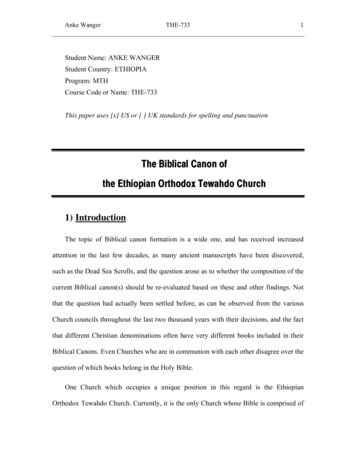
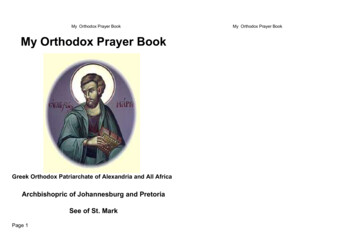
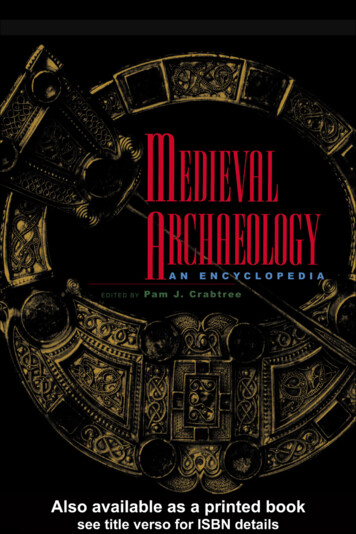
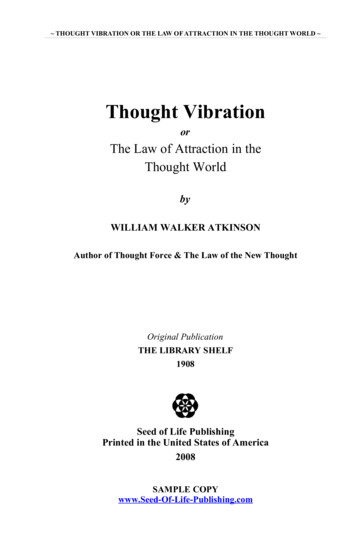
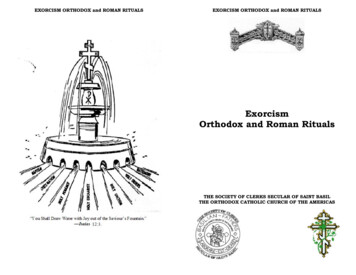
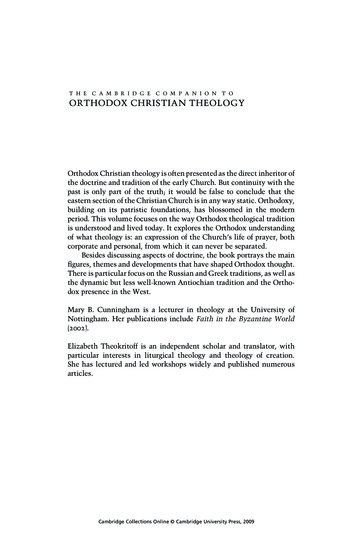
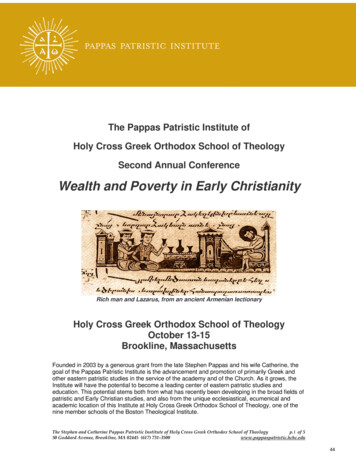
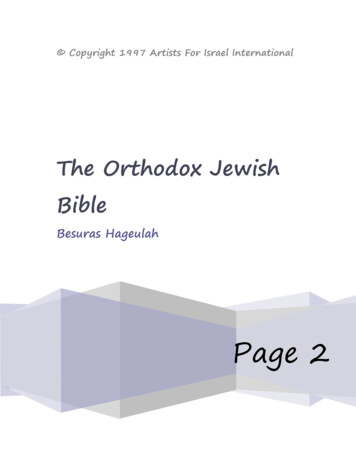
![GENESIS ORTHODOX JEWISH BIBLE [BEREISHEET]](/img/18/genesis-jewish-orthodox-translation.jpg)
